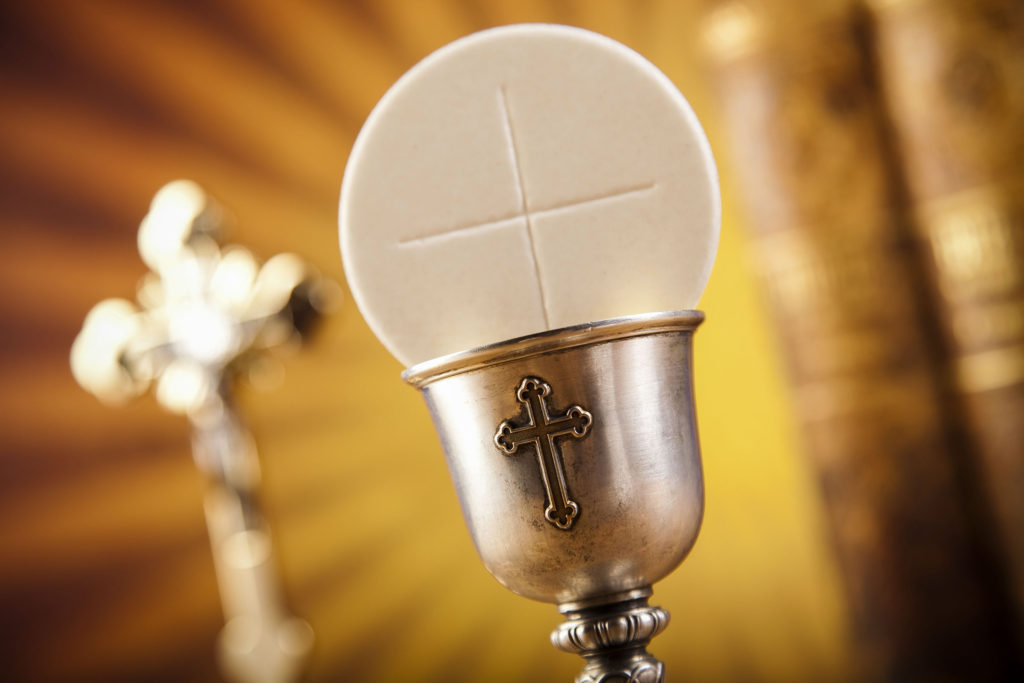Bread of Life

We read from John’s Gospel this week Ch. 6 verses 22-59. Jesus refers to Himself over and over again as The Bread of Life sent from the Father to give eternal life to those who believe. But what did He mean by referring to Himself as bread?
First, Jesus meant to mention Himself as sustenance quite literally. “For my flesh is true food, and my blood is true drink.” JN 6:55. The Jewish people were confounded by this statement. How could they be expected to eat the flesh of Jesus and to drink of his blood and yet all they needed to do was to be reminded of the Passover celebration of their ancestors. Did they not feast on the meat of the sacrificial lamb in Egypt? They literally consumed the meat of the unblemished lamb they sacrificed to God.
Jesus, though blameless and without sin, was made a sacrifice to God for the forgiveness of sins. Jesus declared to his disciples at the last supper, “This is my body, which will be given for you, do this in memory of me.” Luke 22:19. Here Jesus alludes to His sacrificial offering to God for the sake of mankind. He then commands them to continue this breaking of bread in memory of Him.
Enter the Eucharist.
At each Mass we participate in, the sacrifice of Jesus is made to the Father by means of the priest at the altar. In receiving Holy Communion, we are taking in that which cements our relationship with God, the body and blood of Jesus, hidden beneath the appearance of bread and wine.
Second, Jesus tells us “I am the bread of life, whoever comes to me will never hunger.” JN 6:30-35. Does this mean that as followers of Jesus we will never feel physical hunger? Of course not. Jesus was speaking of that spiritual hunger which we all have, given to us at birth, that drives us to search for fulfillment. Our modern culture tries to convince us that our internal voids can be filled with material things or sinful overindulgence. As followers of Christ we know differently.
By receiving Jesus in the Eucharist, we fill our souls with God! There is nothing to compare or equate. The intimacy we are afforded in that close encounter with our God came at a price, and that was the sacrifice made by Jesus on the cross. There is no greater act of love than this. It is when we receive our Lord in the Eucharist that we are filled with His Divine Grace enabling our spirits to be satiated with what we truly need.
Some of the happiest people on earth are those individuals who attend daily Mass. In receiving Jesus daily, they feel better equipped to handle the many demands and hardships of everyday life. Why is this? Their spirits are being properly nourished with their true life source. Praise be to God!
Lastly, “No one can come to me unless the Father who sent me draw Him, and I will raise him on the last day.” JN 6:44-51. Jesus assures us of the reward to be had by believing in Him and accepting His sacrifice as our salvation. Besides giving us His grace in the Eucharist, and promising to be with us in our temporal lives, He tells us in no uncertain terms that we will spend eternity in the presence of God.
Three weeks after Easter, we pause to reflect on the gravity of Jesus’s sacrifice. We ponder the deep love our God has for us as made evident through His son Jesus Christ. How does this knowledge of God’s desire to be with us impact our daily lives? Perhaps the readings of the past week have stirred our spirits and inspired us to better appreciate the gift of the Eucharist.
For those of us having to endure being cut-off from the sacrament during the pandemic, may we value the Eucharist that much more when the ban is lifted. In the meantime, continue to ask for Jesus to come into your life via a spiritual communion. You may even consider reciting The Stations of the Cross or The Chaplet of Divine Mercy as a personal devotion.
May we always respond with gratitude to the generosity of God, best displayed in the crucified sacrifice of His son. May we always cherish the Eucharist and never take it for granted.
Blessings to You and Yours!